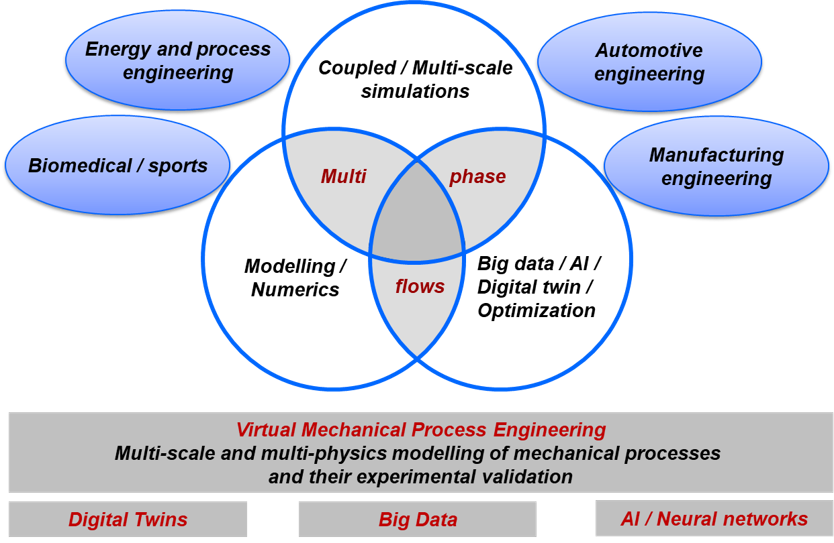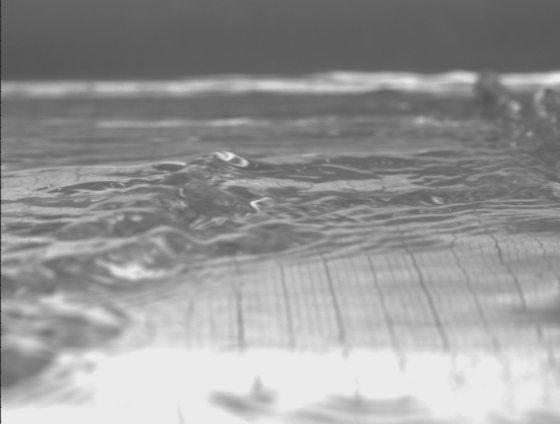Research

Industrial processes are governed by a coupled momentum, heat and mass transport in multiphase systems. Main research topic is the mathematical description and experimental validation of multiphase flows resp. transport processes. Disperse (Particle-/droplet-/bubble-systems) as well as separated systems (free surface flows) will be considered.
For the description of the problems coupled methods (fluid-structure coupling, conjugate heat-transfer, thermal-electric coupling) as well as Immersed-Boundary methods are used.
Due to the different scales - starting from microscales up to macroscales - multiscale modelling is required which is also part of the research concept which is shown below:
The multiscale modelling is based on a coupling of models with different details of modelling resp. a coupling of 1D and 3D simulation models. The used numerical tools are the numerical flow simulation (CFD) and volumetrically resolved particle methods for flow as well as adhesion force calculation of arbitrarily shaped particles based on an Immersed-Boundary method. Coupled methods to describe the interaction of structure and fluid, conjugate heat transfer and thermo-electrical coupling are considered as well. An extension of adjoint methods for the optimization of multiphase flows will be established as well. In various applications methods of artificial intelligence (neural networks), big data and digital twins are already used.
The development of numerical methods is closely related to the experimental validation which will be done in parallel. Especially the experimental validation of coupled problems shall be considered. New measurement techniques (film sensors) as well as validation of measurement techniques (coriolis mass flow meters) are considered
As the development of these methods and tools is general, the methods are applied on different applications in the field of energy-, process-, biomedical-, and manufacturing as well as automotive industry.
The long term goal of the research should finally lead to a virtual mechanical processing engineering, i.e. in the future complex processes in mechanical process engineering shall be modelled in early stages of the product development leading to optimized processes with a high sustainability.
Nearly all of the projects are collaborations between different disciplines like electronics, medicine, chemistry, physics and mathematics. The institute is linked to different centres. Furthermore, the institute is integrated as an associate member in the institute of Mathematical Modelling, Analysis and Computational Mathematics (IMACM) as well as the interdisciplinary centre of applied numerics and scientific computing.
Environmental engineering

Our activities in environmental engineering range from the modeling and simulation of the droplet separation in exhaust gas systems to the modeling of coupled heat transfer processes in turbo machinery and electrical devices to optimize the energy consumption and reduce heat losses.
